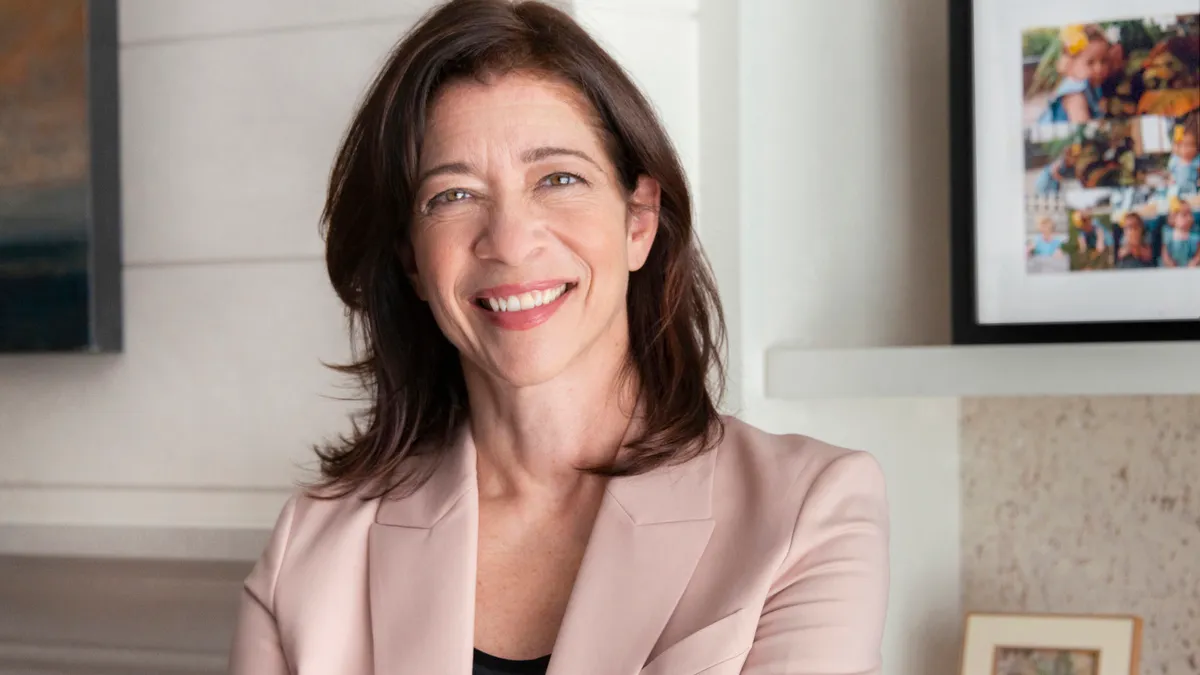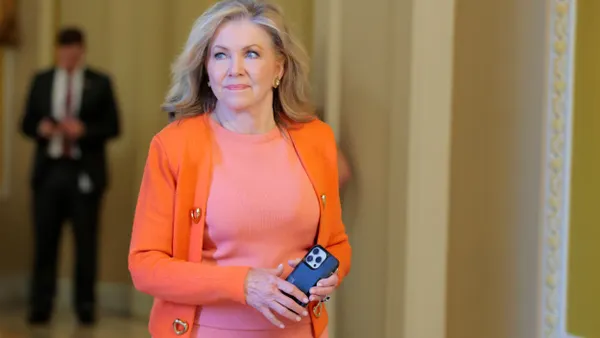Long-time KPMG alum Rema Serafi will take on the role of vice chair, tax for the Big Four accounting firm effective November 15, the company told CFO Dive.
The first woman to serve in the role at the firm, Serafi’s appointment is the latest in a series of leadership hires at the firm in recent months, including appointments to its newly-formed AI group and the hiring of former Uber CFO — and previous KPMG alum — Francois Chadwick to lead its emerging giants group, CFO Dive previously reported.
She will succeed Greg Engel in the position of vice chair, tax, where she will oversee a team of more than 10,000 partners and professionals. Engel is set to retire by the end of the calendar year, KPMG said.
A 27-year veteran of the company who has served as its national managing principal, tax, for three years, Serafi highlighted both technology innovation and building out a strong talent pipeline as key priorities as she prepares for the role, she told CFO Dive in an interview.
Shining a spotlight on data
Tax directors, CFOs and other financial professionals are working to remain in compliance as they face a number of complex tax, legislative and regulatory changes in the current market.
The compliance burden of the Organization for Economic Co-operation and Development’s Inclusive Framework on Base Erosion Profit Shifting (BEPS), remains heavy, for example. Tax leaders are also facing the pressure of new environmental, social and governance transparency requirements, figuring out how to comply with the Inflation Reduction Act, and need to think “in terms of impending tax policy changes” with an upcoming election, Serafi said of just some of the challenges facing tax professionals.
Tax directors or chief tax officers are increasingly being asked to do more with less even as they struggle to get a grip on new challenges while simultaneously ensuring the company is meeting its basic compliance needs. A strong relationship between such officers and CFOs is essential here; the CFO is looking to ensure that the story “that is being told from a tax perspective aligns with the business story,” Serafi said.
“It's very important that the tax director has a seat at the table with the CFO and the C-suite, to be able to think about not just the tax answer, but what's right from a business perspective,” she said.
In the face of these challenges, KPMG is focusing on making investments and innovations in key areas that clients need presently, such as ensuring easy and insightful access to data.
“One thing that has really kind of advanced to the forefront because of the complexities globally, the complex regulatory environment is the importance of data and making sure” that clients are able to harness the data they need to meet their compliance burdens, Serafi said.
Developing an AI talent pipeline
Emerging technologies will also play a pivotal role in the future of KPMG’s tax offerings. The company’s investments in technologies like generative AI — KMPG pledged to invest $2 billion into the technology over the next five years via its partnership with software firm Microsoft — will aid the firm in developing the capabilities needed to “help our clients tell the best story they can tell to their tax authorities, so that they can help manage controversy and manage the turbulence in the year that they're anticipating in the years ahead,” Serafi said.
Part of the company’s recent leadership changes come as the company focuses on AI’s potential; early last month, the company announced fellow KPMG alum Steve Chase would transition to the role of vice chair for its newly formed AI and Digital Innovation Group, CFO Dive previously reported.
The “overall mission statement or the brief that that that we've given ourselves is to create a process for systematic adoption of ongoing innovation in digital, AI, what have you,” Chase told CFO Dive in an interview. The company needs to be focused on putting AI “in everything we do,” he said.
AI is very much a part of the company’s roadmap — and a number one priority is to think about what “kind of workforce we're going to need in the future given the advancements of technology, the advancements of AI” will be essential here, Serafi said. With an ongoing accounting and finance talent shortage, providing a strong answer to recent college graduates for why they should consider a career in tax is crucial, she said.














